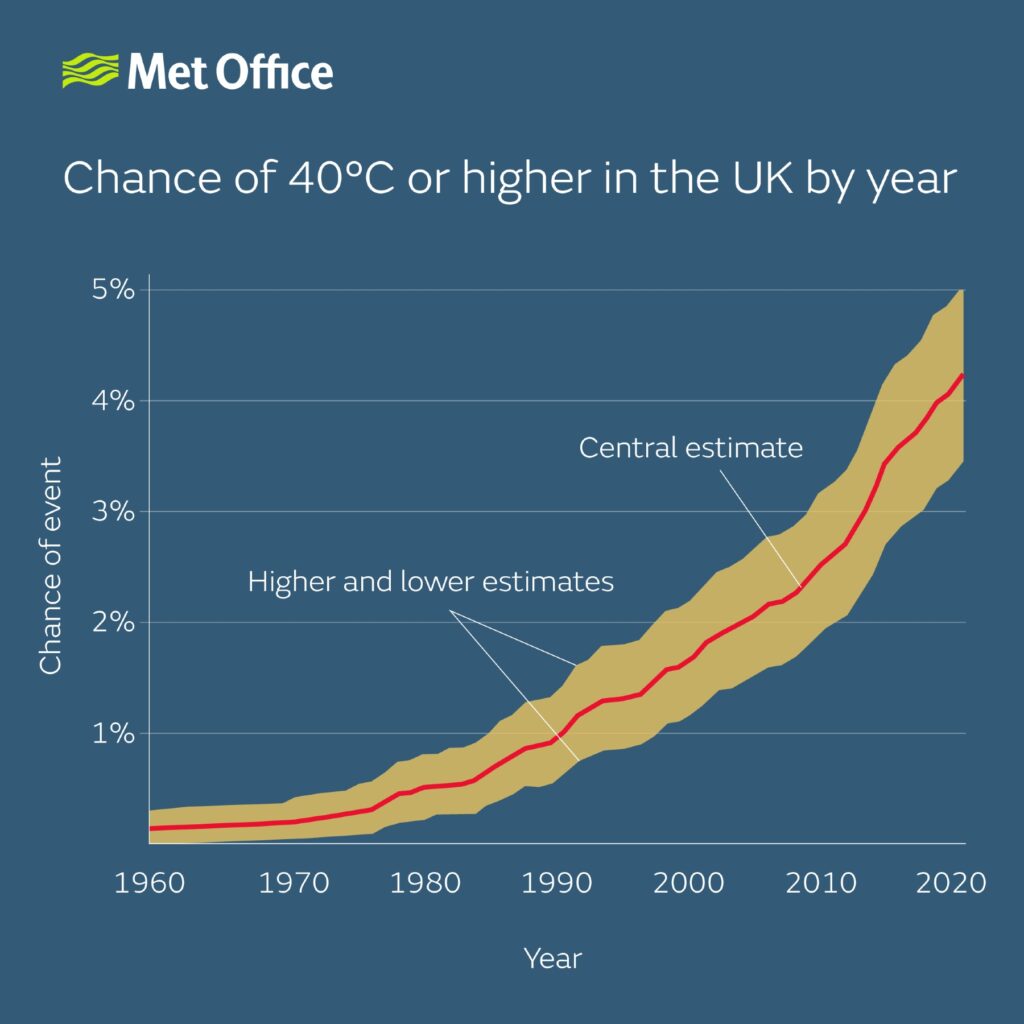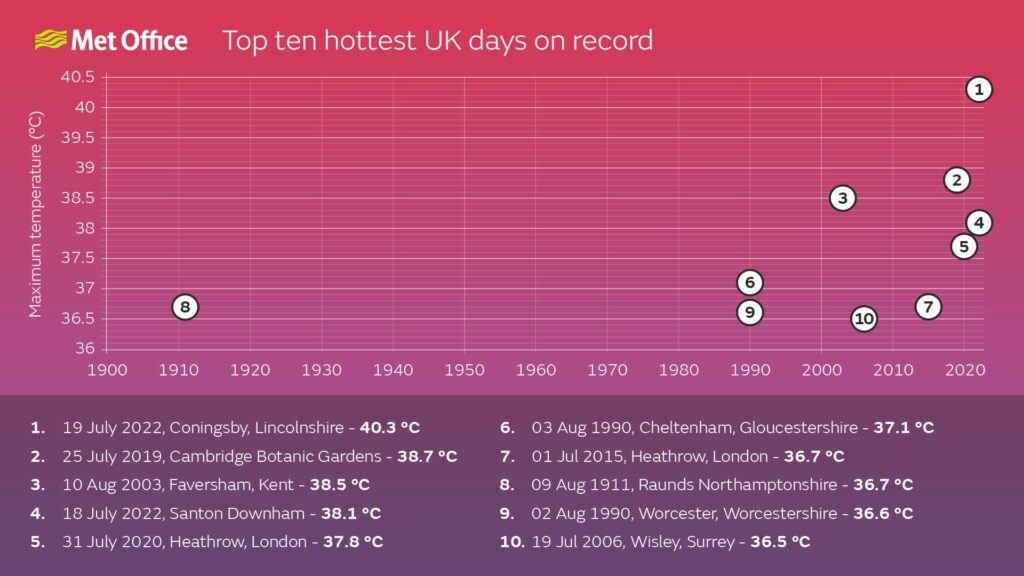A new study from the UK Met Office published in Weather Journal has indicated that temperatures exceeding 40°C in the summer months will become increasingly likely within the next decade due to escalating climate trends. To give this finding some context, the UK experienced its first recorded temperature above 40°C, when Coningsby in Lincolnshire reached 40.3°C in July 2022
The UNSEEN study employed a global climate model to generate a vast array of possible climate scenarios under current conditions. This approach enables researchers to evaluate present-day risks and analyse how extremes have evolved over recent decades. The team, led by Gillian Kay used the climate model to simulate more than 2500 UK summers to assess the kinds of extremes possible under 2023 climate conditions.
The key findings of the study are:
- The chance of exceeding 40°C has been rapidly increasing, and it is now over 20 times more likely than it was in the 1960s.
- As the climate continues to warm, the chance of exceeding 40°C will rise.
- The study estimates a 50-50 chance of seeing a 40°C day again in the next 12 years. with the south and east of England most vulnerable to heat extremes. It was also found that temperatures several degrees higher than we saw in July 2022 are possible in today’s climate.
- Simulations show three or four consecutive days of temperatures above 40°C are also possible under current conditions.
- Temperatures over 42°C have a 1 per cent likelihood of occurring in any given year.
- The theoretical maximum possible UK temperature could be around 46°C.
- The study finds that in today’s climate the key heatwave threshold temperature of 28°C which is for south east England could persist for a month or more.

In relation to extended heat waves, Dr Nick Dunstone, Met Office Science Fellow and co-author of the study, said “These findings highlight the need to prepare and plan for the impacts of rising temperatures now, so we can better protect public health, infrastructure, and the environment from the growing threat of extreme heat.”
During the July 2022 heatwave, the UK struggled to cope with even a brief burst of heat above 40°C. More than 1200 excess deaths were recorded, rail transport was disrupted, schools were closed and wildfires swept through the countryside.

The study is certainly a stark warning for public authorities and services and in particular those for public health. Clear planning is going to be required to ensure the all systems can adequately cope with such extreme temperatures in the UK.